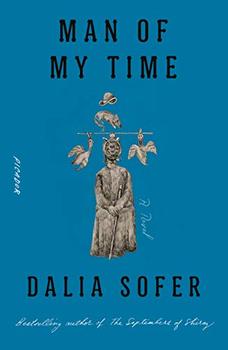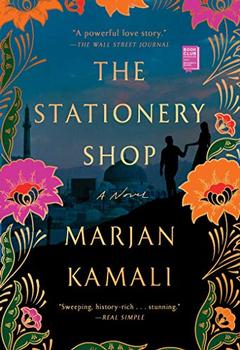Summary | Excerpt | Reviews | Beyond the book | Read-Alikes | Genres & Themes | Author Bio

The Gardens of Consolation introduces 12-year-old Talla, and her 20-year-old husband Sadar, as they leave their village to build a better life in the outskirts of Tehran. Set during the first half of the 20th century, Consolation describes the daily lives of average Iranian citizens such as Talla and Sadar. This debut novel, which won the 2015 Prix Senghor award given to Francophone writers, also explores the effects of the country's transforming politics and social norms.
As was common in rural Iran at the time, Talla and Sadar were married when 9 and 17 respectively, but at the start of the novel have only just begun their lives together as man and wife. Talla in particular has lived an isolated existence and had never seen a desert, city or an automobile before the journey to Tehran.
It is the year 1299 [1921 CE] in the Iranian calendar: the end of a century and the imminent end of a dynasty. For now Talla is still in the mountains of western Iran and does not know the king's name. She has never heard the words history, geography, Asia, Europe, Russia or England. She has never heard about Iran's constitutional revolution in 1285 [1907 CE], nor the Bolshevik revolution in Russia, and does not know the First World War has only just come to an end.
Through her characters, Reza illustrates different aspects of rural life in Iran. For example, when Talla was a child, her family of seven weathered cold winter nights by sleeping huddled together around "a korsi, a low table covered with a huge blanket under which they kept a heating pan filled with glowing embers and hot stones." As Talla's experiences broaden, readers learn how renters like she and Sadar are subjected to a feudal system – the village belongs to a master and the peasants obey him completely. Later, as the couple grows more prosperous, they adapt to owning their own land and livestock.
In the city, Talla resents being forced to wear a black chador (see 'Beyond the Book' for The Underground Girls of Kabul) after the freedom she experienced in the countryside. A decade later, as the political climate changes, she is told to not wear it, which brings about its own indignation. The author brilliantly describes Talla's roller coaster of emotions as she experiences the vicissitudes of her day-to-day existence.
The focus gradually shifts from Talla's life to that of her only surviving child, handsome and well-educated Bahram. As Bahram becomes a young man, mother and son illustrate the evolution of Iran's education system and the development of a generational divide in the country. Bahram goes to university and becomes an ardent follower of the country's new prime minister, Mohammed Mossadegh (also spelled "Mossaddegh." See 'Beyond the Book'). His illiterate mother, on the other hand, "would never dream that she might be able to intervene in any way in national affairs. She would find the very idea as grotesque as blasphemy. Luckily, no one has told her about the right to vote, nor ever will, because it would make her angry, and she has no interest in women's rights."
Reza's writing, aided by Adriana Hunter's talented translation from the French, is lyrical, the text almost reads like a fable. At once simple and vivid, the author brings Iranian history, attitudes and politics to life in an engrossing, entertaining and informative way. She does veer off a bit toward the end, when after Mossadegh is overthrown in a coup, the bewildered Bahram runs to a party elder's house and opines that: "this country will never experience peace and freedom...what would be the point of freedom when enslavement is so tragic, tragedy is so poetic, and poetry is so Persian!" This section seems overlong and preachy, and somewhat out of step with the rest of the novel. It's just a few pages, however, and the beauty of the last chapter is what readers will likely remember.
Fiction has the power to transport readers to an unfamiliar world and teach them about unfamiliar cultures. The Gardens of Consolation meets and exceeds this goal. It will doubtless delight anyone wishing to learn more about Iran and its recent history, and Reza's beautiful writing is sure to please. The novel is especially recommended for book groups, as its various themes (women's rights, generational change, etc.) will provide ample material for discussion.
![]() This review
first ran in the January 4, 2017
issue of BookBrowse Recommends.
This review
first ran in the January 4, 2017
issue of BookBrowse Recommends.

If you liked The Gardens of Consolation, try these:

by Dalia Sofer
Published 2021
From the bestselling author of The Septembers of Shiraz, the story of an Iranian man reckoning with his capacity for love and evil.

by Marjan Kamali
Published 2020
A powerful love story exploring loss, reconciliation, and the quirks of fate.
Your guide toexceptional books
BookBrowse seeks out and recommends the best in contemporary fiction and nonfiction—books that not only engage and entertain but also deepen our understanding of ourselves and the world around us.